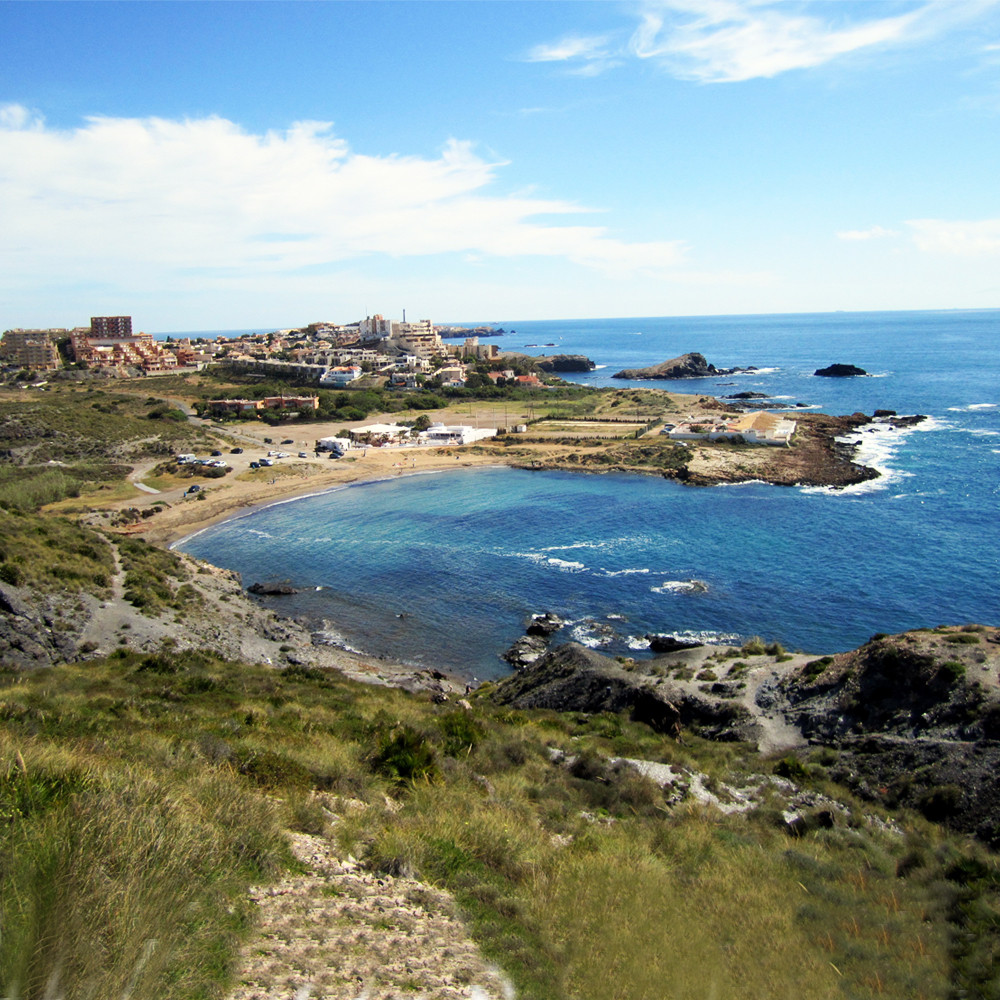
What does Holly do at Northern Diver?
As a graphic designer in our Creative Team, Holly supports the business by photographing new products, custom printing kit, designing adverts and helping our Rescue team build bespoke suits to client's specifications. She even helps in the shop on Saturdays.
Due to her love of the business, an interest in learning more about diving and because Holly's family regularly travel to Murcia, Spain on holiday, last year Holly decided to begin to learn to dive there. She kept it secret at first in case it didn't go well or she didn't enjoy it. However, there was little danger of that - Holly loved it, and when you take more of a look into Murcia, it's easy to see why.
Murcia has:
- 5 diving areas
- 2 Protected marine reserves
- and a lot of sunshine!
The region has 16 diving centres. Each offer courses and dive expeditions from beginners to more technical dives, there's something for everyone, no matter your experience level. There's even large shipwrecks and underwater caves and crevices to explore once you build your experience and confidence up.
There's 5 main areas for diving in Murcia:
- La Manga Isla Grosa
- Cartagena - La AzohÍa - Cabo Tiñoso
- Mazarrón
- Aguilas
- Cabo de Palos - Islas Hormigas
Each has a fantastic variety of flora and marine life making them exceptional options for diving. All these sites offer easy dives in shallow waters to more challenging routes. But Holly chose to learn at Cabo de Palos with Adventure Divers.
Not only is Cabo de Palos close to where her family stay, but it's an ideal place to see plenty of marine species pass by and there's incredible reefs to see and explore. Cabo de Palos is also home to one of the two marine reserves in Murcia. It's considered one of the most beautiful places to dive in the Mediterranean so Holly couldn't wait to start exploring.
Holly, what did you need to do to become PADI qualified?
"I learned at Cabo De Palos, Murcia, in Spain with Adventure Divers. There's three parts to becoming open water qualified, one part is theory and then there's two practical parts."
PADI themselves note that the theory part of the accreditation is knowledge development. It's designed to help you understand the basic principles of scuba diving. These principles are what you're tested on in a final assessment where you have to get 75% or more to pass.
Holly continued "First you do 'Try Dives', these are usually pool dives, however, in Spain I was able to go straight into the sea because the water is so shallow in Cabo De Palos. As part of the Try Dives, you learn a lot of skills like how to; clear a fully flooded mask; remove mask and swim for at least 15 metres, then replace and clear mask; demonstrate neutral buoyancy; practise a controlled emergency swimming ascent (CESA); and lots more."
The Try Dives Holly refers to are what PADI call 'Confined water dives'. These take place in a pool or shallow water and they're designed to teach you basic scuba skills.
And then what Holly? "You need to learn and demonstrate all of these things in the Try Dives before you move to open water. Then for the Open Water dives, you complete four dives - diving to a depth of around 18m (30ft) - using the skills you've learned over the training sessions. I was a bit nervous but by the fourth dive you're just enjoying it really."
How long has all this taken Holly?
"I started learning and doing my Try Dives and theory tests in October last year but I was only able to do my Open Water tests this year. I originally went in Easter t get my open water dives done but the weather was terrible so I couldn't do it, I was really disappointed.
I had the chance to go back in May, so I jumped at the opportunity to finish the course and get in my open water dives. I completed my fourth open water dive on the 18th May 2019 and I'm actually really proud of myself."
So Holly, what's next?
"I'm interested now in just building my confidence and looking to get in more dive time. I'd be interested in doing my Advanced Open Water Diver Course in the future, but not until I've had more experience."